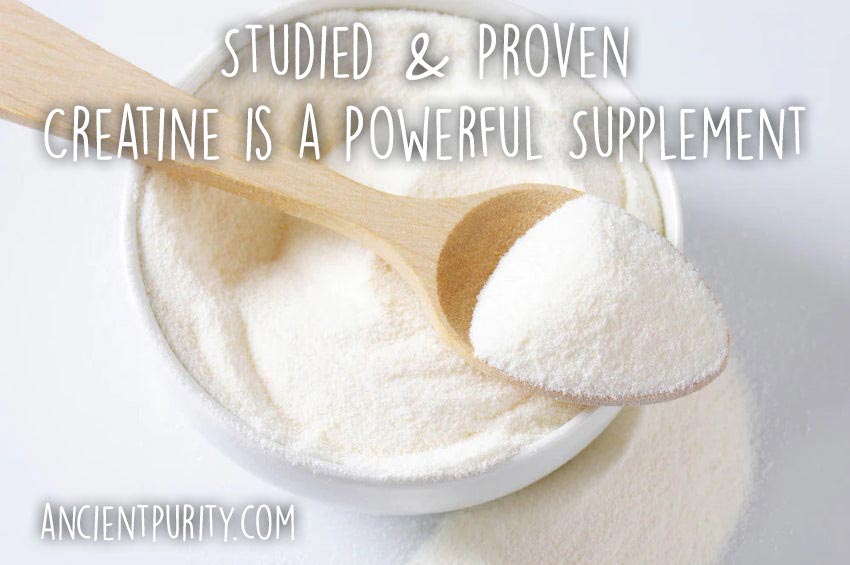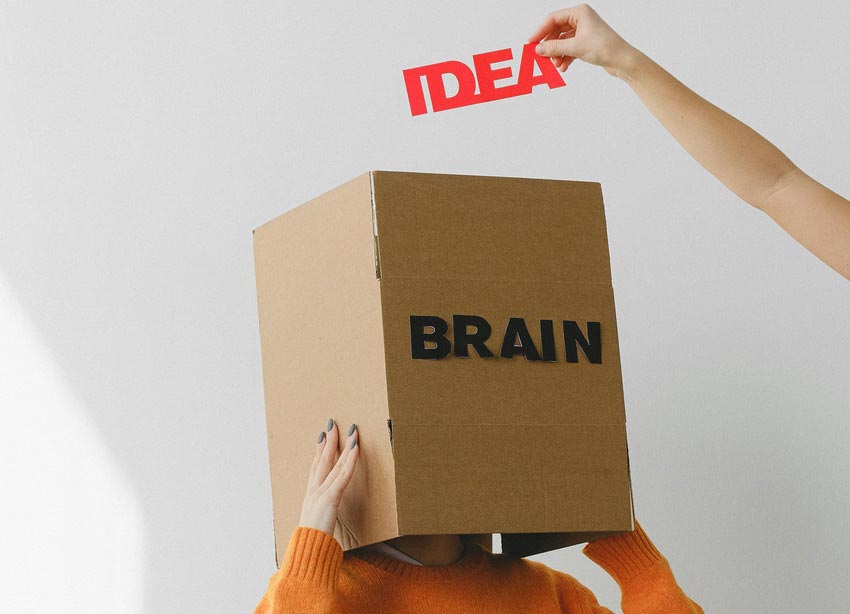Creatine Levels in the Brain Linked to Recovery from Traumatic Stress
As an avid badminton enthusiast, I understand the toll that each intense game can take on my body. That's why I turn to a powerful ally in my quest for peak performance – Creatine. With just one scoop of this miracle supplement added to my pre-workout routine, I feel a rush of vitality and vitality surging through me. Suddenly, all the running, smashing, and precision shots on the court feel effortless. Creatine is the secret weapon that gives me the competitive edge I need to shatter my limits and achieve new personal bests. It amplifies my speed, power, and endurance levels, allowing me to push past barriers I never thought possible. But the benefits of Creatine don't stop there. Recent research has uncovered its potential to aid in the treatment of PTSD, offering hope and relief to those struggling with its devastating effects. Just as Creatine charges my physical performance on the court, it also holds promise for transforming lives off the court. With its wide-ranging benefits, Creatine truly is a game-changer in every sense of the word.
Creatine is a powerful natural compound that resides within the very cells of our muscles and brains, acting as a crucial component in fuelling our bodies during intense workouts and heavy lifting sessions. The majority of this vital substance is stored in our muscles, where it serves as a rapid source of energy for bursts of activity. It is no surprise then that athletes often turn to Creatine to enhance their performance, as it is swiftly converted by the body from adenosine diphosphate (ADP) to adenosine triphosphate (ATP) – the primary energy currency of our cells – providing the necessary fuel for muscle contractions. But the benefits of Creatine extend beyond physical prowess, as it also plays a role in powering our brains and has been linked to aiding in recovery from traumatic stress. Through its dual role in promoting both physical and mental well-being, Creatine truly stands as a remarkable ally in the pursuit of peak performance and optimal health.

Exploring the Neurobiological Factors Behind PTSD Development in Some People & Resilience in Others
Creatine, commonly known for its physical performance and muscle health benefits, is now making waves in the world of brain health. According to a recent study conducted by researchers at the University of Utah School of Medicine, this compound could hold the key to aiding in the recovery from the devastating effects of traumatic experiences, particularly in U.S. veterans. In a recent publication in the esteemed Journal of Affective Disorders, the scientists highlighted the potential of Creatine as a neurobiological marker of stress reactivity and recovery. They emphasised that while people may respond differently to traumatic events, with some developing PTSD and other psychological conditions, there is a significant percentage of persons who exhibit robust recovery.
The symptoms of PTSD, which include intrusive memories, avoidance, negative changes in thinking and mood, and changes in physical and emotional reactions, can vary in intensity and duration. Despite the fact that about 70% of adults worldwide have experienced at least one traumatic event, the lifetime prevalence of PTSD is relatively low at 6.1%. This discrepancy in outcomes underscores the need to better understand the factors associated with recovery from traumatic experiences. By uncovering the mechanisms that contribute to resilience, researchers hope to gain new insights into the assessment, prevention, and treatment of PTSD and other trauma-related conditions. The implications of this research are profound, suggesting that Creatine may not only enhance physical performance but also play a crucial role in promoting mental well-being. As the scientific community delves deeper into the potential benefits of this compound, the possibilities for improving the lives of those affected by trauma are truly limitless.
Exploring the depths of the human mind, researchers have unearthed the intricate interplay between early childhood experiences, individual personality, traumatic events, and neurobiological factors. Among the myriad regions of the brain, the anterior cingulate cortex (ACC) emerges as a pivotal player in processing negative emotions and regulating emotional responses. Tucked away in the frontal lobe, the ACC serves as a hub for various cognitive and emotional processes. It lights up like a wildfire when confronted with pain, sadness, or fear, orchestrating a symphony of reactions within the brain. Not content with merely reacting, the ACC also takes charge of decision-making and the anticipation of adverse outcomes.
In a quest to unravel the mystery of neurochemical factors in mental health, researchers have turned their attention to Creatine. This compound, found in the ACC, has been linked to stress-related conditions triggered by traumatic events. Studies in animals have shown that exposure to trauma decreases levels of Creatine in the ACC, suggesting a connection between traumatic experiences and neurochemical changes in the brain. Yet, the extent of this connection in humans remains shrouded in uncertainty. As the intricate web of factors influencing mental health continues to unravel, the role of the ACC and Creatine emerges as a tantalising piece of the puzzle. With each discovery, we inch closer to understanding the complexities of the human mind and how it weathers the storms of life.

The Potential Benefits of Creatine in Treating Traumatic Stress
In an innovative study, researchers looked closer at the intricate relationship between Creatine concentrations in the anterior cingulate cortex (ACC) and the stress levels experienced by U.S. veterans with a history of traumatic events. Through brain scans and data collection on mental health status, the study revealed a fascinating connection. Veterans with higher levels of Creatine in the ACC showed significant reductions in stress following their traumatic experiences. The implications of these findings are profound. The research concluded that Creatine levels in the ACC could play a crucial role in stress recovery, hinting at the potential for Creatine to act as a protective factor against the debilitating effects of traumatic stress. This sheds light on the importance of cellular energy, as Creatine enables the regeneration of ATP, an essential component in cellular function.
As the researchers hypothesised, the levels of Creatine in the brain could influence an individual's ability to bounce back from trauma by impacting energy availability in critical brain regions. This highlights the vital need for ample cellular energy for optimal brain function. The brain, being the energy-hungry powerhouse of the body, requires a significant portion of the body's energy to function effectively. Without sufficient cellular energy, not only does cognitive function suffer, but mental health is also at risk. It becomes clear that maintaining a surplus of cellular energy creation is key to ensuring that the brain can operate at its best capacity. The study's findings underscore the importance of understanding the role of Creatine and cellular energy in mental health and stress resilience, shedding light on new pathways for potential therapeutic interventions.
How to Increase Cellular Energy
Optimizing your dietary choices by steering clear of excessive linoleic acid found in vegetable and seed oils is crucial for maximising mitochondrial function and enhancing cellular energy levels. Factors like hormonal imbalances and endotoxins can also drain your cellular energy reserves. Enhancing your mitochondrial energy production not only ensures optimal physical vitality but can also uplift your mood, playing a pivotal role in maintaining mental well-being. In addition to monitoring your diet, incorporating Creatine into your routine is indispensable. This powerful compound aids in the regeneration of ATP, the energy currency of cells, thus enhancing energy utilisation efficiency. Creatine's benefits extend to supporting mitochondrial function by facilitating the availability of ATP, thereby optimising overall cellular energy metabolism. To elevate your cellular energy levels, particularly for the brain, it is essential to focus on enhancing mitochondrial function. By integrating key concepts like dietary modification, hormonal balance, and Creatine supplementation, you can effectively elevate your cellular energy levels and enhance your overall well-being.
- Ensure your Thyroid is Well-Functioning: Having optimal thyroid function is crucial for maintaining a strong metabolism and energy production. To assess your thyroid health, it is vital that your TSH levels are well-suppressed and below 0.5. Additionally, you can monitor your body temperature by checking it first thing in the morning and two hours after meals. Lower temperatures may indicate decreased thyroid activity. Ensuring your thyroid is functioning at its best is crucial to overall wellness and vitality.
- Reduce Oestrogen Excess: Oestrogen, whether bio-identical or not, can be just as harmful to your mitochondrial function as LA. To protect yourself, steer clear of oestrogen supplements and plastics, which are packed with xenoestrogens. Instead, opt for trans-mucosal progesterone - not the oral or transdermal kind - as it serves as a powerful blocker of oestrogen. By making these simple changes, you can safeguard your body and promote better mitochondrial health.
- Reduce LA as Much as You Can: This potent mitochondrial poison is a crucial factor to be mindful of. By actively reducing your intake of linoleic acid (LA), you could potentially safeguard your health and well-being. It is in your best interest to minimise your exposure to high-LA foods, such as the vegetable and seed oils commonly found in many heavily processed food items. Stay vigilant and steer clear of these harmful substances to maintain optimal mitochondrial function and overall vitality.
- Improve your Microbiome: Imagine a scenario where a staggering 95% of individuals are metabolically inflexible, unable to efficiently utilise the energy from the food they consume. To make matters worse, their microbiome, the diverse community of microorganisms living in their gut, is disturbed, with an abundance of harmful bacteria producing toxins that wreak havoc on their mitochondria, the powerhouse of their cells. This toxic overload further exacerbates their metabolic dysfunction, creating a vicious cycle that compromises their overall health and well-being. It is crucial to address this intricate web of imbalances, as restoring harmony within the body is essential for optimal function and vitality.

Creatine’s Numerous Benefits for the Brain
Stuart Phillips, Ph.D., is a professor of kinesiology at McMaster University in Canada. He's an expert in growing and maintaining muscle mass as you age. In an interview with Rhonda Patrick, Ph.D., he commented on using creatine regularly, “You know, the stuff now with creatine that they're uncovering that makes me think, ‘Maybe this should be part of my regular routine.’ Actually [it] has less to do with the muscle and more to do with the brain and cognitive performance.” In fact, creatine monohydrate is one supplement that Phillips said makes his short list for its benefits for muscle growth and brain health. “Its effects are pretty mild on muscle, but they're there. They're potent. They last. Now the brain and the cognitive side of things … the evidence is growing in that area too.” Research has demonstrated that creatine plays a critical role in the function of the brain and other tissues that have high energy demand. Children who have genetic errors of creatine synthesis present with severe neurological symptoms and patients with other neurodegenerative diseases benefit from creatine supplements. Other research suggests reduced creatine is associated with depression and anxiety.
In an amazing discovery, researchers have uncovered the remarkable benefits of Creatine in combatting symptoms associated with devastating illnesses such as Parkinson's-like disease. In a study involving mice, Creatine was found to prevent an astonishing 90% of the typical decline in dopamine levels, which are responsible for debilitating symptoms like the loss of muscle function and speech impairment. In another remarkable revelation, a research team discovered that supplementing with Creatine in an experimental model of mild traumatic brain injury actually improved cognitive processing during periods of oxygen deprivation. This led the team to conclude that Creatine serves as a vital neuroprotective supplement when cellular energy provision is compromised, a finding that could revolutionise treatment strategies for brain injuries.
Furthermore, a study published in Nutrition Reviews highlighted how Creatine supplementation can significantly enhance memory performance in older adults, particularly those aged 66 to 76 years. The research pointed to Creatine's ability to impact brain bioenergetics, including the elevation of phosphocreatine and ATP levels, as well as the stimulation of mitochondrial activity in brain cells. The implications of these findings are profound, suggesting that Creatine may hold the key to unlocking new strategies for combatting neurodegenerative diseases and enhancing cognitive function in ageing populations. The power of Creatine to protect and enhance brain health is a testament to its potential as a transformative supplement in the field of neuroscience.

Top Sources of Creatine
For those seeking to enhance their Creatine levels through their diet, incorporating a range of Creatine-rich foods can prove advantageous. It is worth noting that Creatine is exclusively found in animal-based sources, ruling out plant-based options. Opting for grass-fed meats is a smart choice, as they are known to be among the finest sources of Creatine. However, steer clear of pork and chicken, as they typically contain high levels of LA, which may not be as beneficial. While grass-fed meats can help enhance Creatine intake, they may not offer the same concentrated doses that can be obtained through Creatine supplementation. Among the various forms of Creatine available, Creatine monohydrate stands out as the most extensively researched and hence, boasts the strongest evidence of health benefits. You can learn more about Creatine Monohydrate here. It is crucial to select Creatine from a reliable manufacturer to ensure its effectiveness.
Numerous clinical trials spanning up to 5 years have found no detrimental effects among healthy individuals consuming Creatine. Nonetheless, it is essential to adhere to the recommended dosage. Some individuals may experience bloating when using Creatine, usually due to insufficient water consumption alongside the supplement. However, this discomfort typically dissipates within a few hours. Factors impacting bloating include pure water intake, workout intensity, and diet. For vegans and vegetarians, incorporating Creatine supplements into their regimen may be advantageous for brain health. Studies suggest that Creatine supplements can potentially enhance cognitive function in vegetarians. With its incredible benefits and minimal risks, Creatine is a valuable addition to any dietary plan seeking to optimise health and performance.
''Healing from Complex PTSD is not linear; it's a journey of ups and downs, but every step forward is a step towards reclaiming your life.'' - Unknown






















